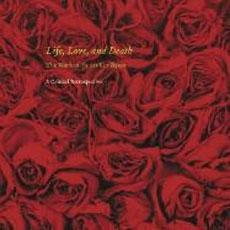Leben, Liebe und tod. Life, love and death

In 1956, James Lee Byars rented a sod farm for a midnight, full moon exhibition of his abstract figure sculptures; guests viewed the work from sleds pulled over snow. In 1959, he abandoned durable materials for paper and fabric. In 1965, a nun performed his “A 1,000-Foot Chinese Paper” at the Carnegie International. The wondrous story of James Lee Byars begins in 1932 and ends in 1997, and its unique synthesis of Conceptual art, Minimalism, and Fluxus reflects an unending striving for beauty and perfection. The story passes by way of Japan, a place where Byars lived for many years, and where he combined the formal and symbolic aspects of Noh theater and Shinto rituals with elements of Western science, art, and philosophy, developing an appreciation for the transient, ceremonial character of performance as an essential quality of his art. Over his lifetime, he was known for works characterized by an extreme simplicity of form and material that simultaneously appeared astonishingly luxurious. “Life, Love, and Death” presents a critical review of Byars’ oeuvre and traces his development as an artist from his formative period in Japan to his later years in New York–ranging from his performances and works on paper and fabric devoted to the theme of life, to his splendid late sculptures in gold, marble, and velvet which deal with death as the embodiment of perfection.
Out of stock
Out of stock




